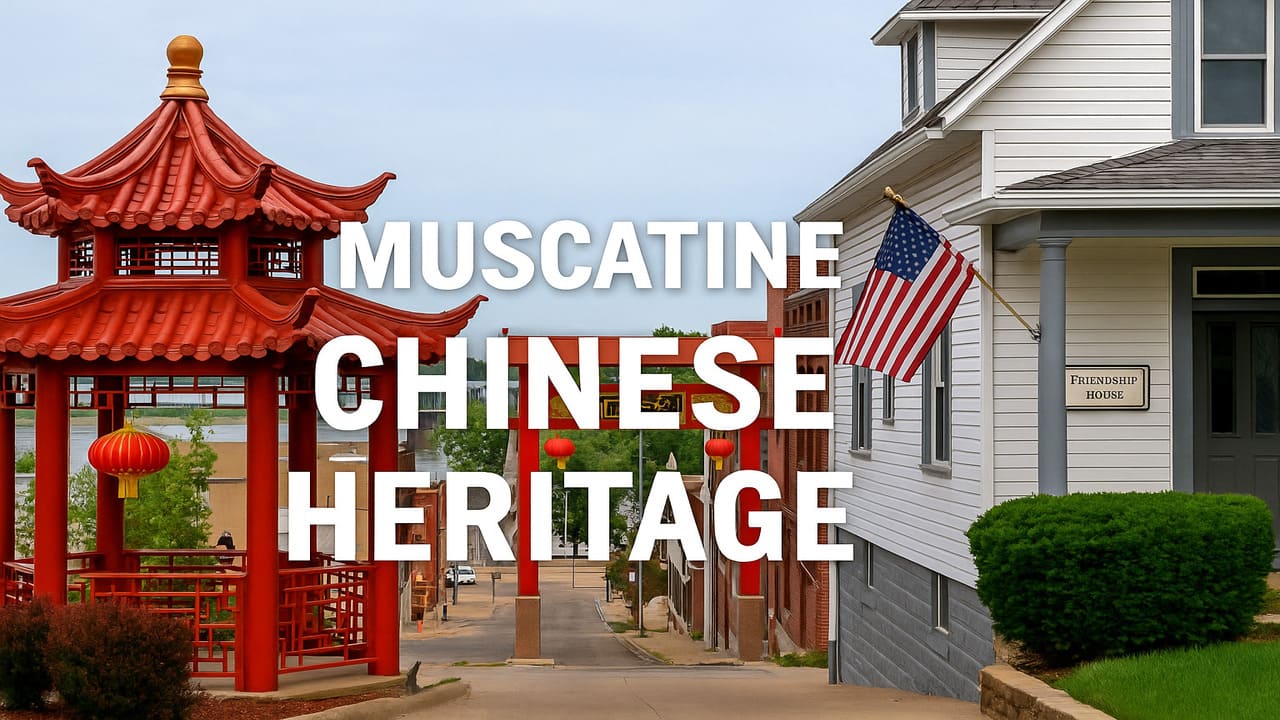
Meet Muscatine – The story of Muscatine is not one of a large immigrant population or massive Chinatowns. Instead, it is a narrative marked by people-to-people connections, mutual curiosity, and a serendipitous visit from one of the most powerful leaders in the world. It is a story that continues to define Muscatine Chinese Heritage quiet yet powerful role in fostering international cultural understanding.
In 1985, a young Chinese official named Xi Jinping then a county leader from Hebei province visited Muscatine as part of an agricultural delegation. He stayed in the modest home of the Dvorchak family and spent several days exploring American farming techniques. At the time, few could have predicted that this low-key visit would become a cornerstone of international diplomacy nearly three decades later.
Xi Jinping’s brief stay left a strong impression on the Muscatine residents who met him. In return, Xi recalled the warm hospitality and openness he experienced in the city, a sentiment he expressed during later visits to the U.S. as China’s Vice President and eventually its President.
This unexpected connection reemerged in 2012 when, during his official visit to the U.S., Xi made a special stop in Muscatine to reunite with the “old friends” he had met decades earlier. That visit sparked global media attention and positioned Muscatine as a symbol of grassroots diplomacy between China and the United States.
Also Read : The Culture of Care: Traditional Hospitality in Muscatine’s Daily Life
The home where Xi Jinping stayed in 1985 has since become a local landmark, now known as the “Muscatine Friendship House.” Decorated with Chinese art and cultural displays, the house serves as a quiet reminder of the profound impact that a simple act of hospitality can have on international relations.
In the years following Xi’s 2012 return, the house has hosted numerous Chinese delegations, journalists, and tourists who seek to retrace the footsteps of their President. For many, visiting Muscatine is more than tourism it is a pilgrimage to a site of living history, where a small town made a lasting impression on a future world leader.
The connection between Muscatine and China has since evolved into a broader cultural and educational relationship. In 2013, the Muscatine China Initiative was formed to promote mutual understanding through student exchanges, academic collaborations, and cultural programs.
Local high schools and colleges have hosted Chinese students and participated in sister-city relationships with towns in Hebei. Similarly, residents of Muscatine have traveled to China for cultural exchange programs, often returning with stories of warm welcomes and shared curiosity.
Community centers in Muscatine have also held Chinese New Year celebrations, calligraphy workshops, and exhibitions of traditional Chinese crafts and photography. These efforts, though small in scale, symbolize the city’s ongoing commitment to honoring and deepening its unique East-West relationship.
Read More : BTS Goes Live Together After 3 Years, Announces Comeback
What makes Muscatine Chinese heritage especially compelling is that it transcends politics. The relationships built here are rooted in personal interactions meals shared, stories exchanged, and moments remembered. Former Mayor Dick O’Brien once described Muscatine’s connection to China not as political theater but as “human diplomacy.”
This genuine connection has inspired books, documentaries, and even art exhibitions. In 2021, a local art gallery curated a special exhibit titled “Bridges: East Meets Midwest,” featuring collaborative works between Chinese and Iowan artists.
Residents like Sarah Lande, who hosted Xi Jinping in 1985 and again in 2012, have written memoirs about the experience. Her story has become a symbol of Muscatine’s soft power a power rooted in kindness and community, not influence or policy.
Today, Muscatine sees a small but steady trickle of international visitors many from China who come to experience the town that once welcomed their president. Local businesses, hotels, and restaurants have gradually adapted, offering translated materials, Mandarin greetings, and even Chinese dishes on the menu.
The city has embraced this role modestly. Unlike major tourist destinations, Muscatine Chinese Heritage doesn’t try to be something it’s not. It offers what it always has: sincerity, quiet beauty, and an open door. For many visitors, that’s exactly what they’re looking for.